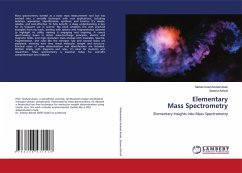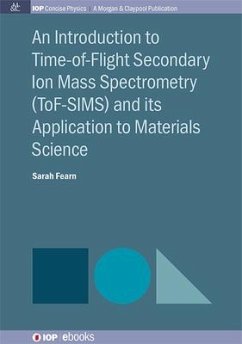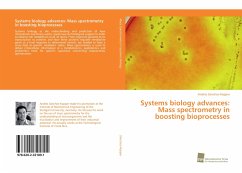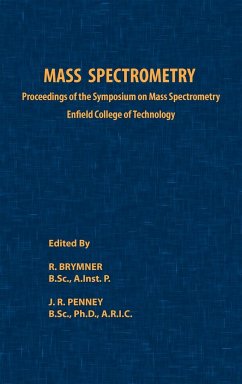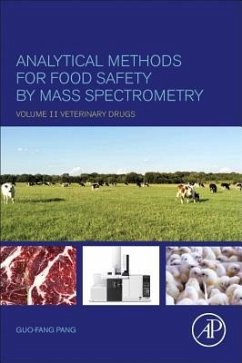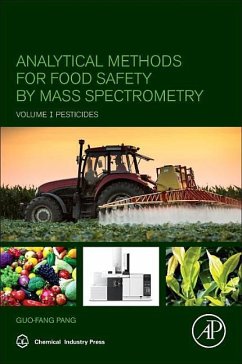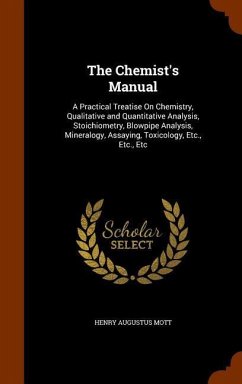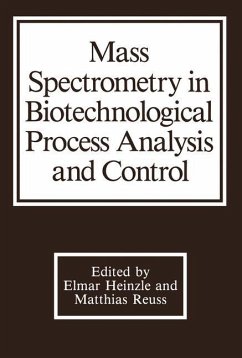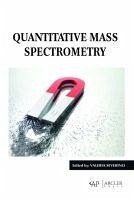
Quantitative Mass Spectrometry
Versandkostenfrei!
Versandfertig in über 4 Wochen
157,99 €
inkl. MwSt.

PAYBACK Punkte
79 °P sammeln!
Understanding the complexity of biological processes involved in the regulation of cellular functions is an important goal. It is clear that the deep characterization of molecules necessary to construct and maintain a complex system represents the key to understand this conundrum. In particular, high-throughput strategies to investigate the functions, amount, and modification status of these biomolecules within the system context are required. Mass spectrometry (MS) is a classical analytical technique in which ionized chemical species are sorted on the basis of their mass-to-charge (m/z) ratio...
Understanding the complexity of biological processes involved in the regulation of cellular functions is an important goal. It is clear that the deep characterization of molecules necessary to construct and maintain a complex system represents the key to understand this conundrum. In particular, high-throughput strategies to investigate the functions, amount, and modification status of these biomolecules within the system context are required. Mass spectrometry (MS) is a classical analytical technique in which ionized chemical species are sorted on the basis of their mass-to-charge (m/z) ratio. The ion signals are plotted as a function of the m/z ratio, thus providing the so-called mass spectrum, typically used to gain information about the isotopic signature, the mass and the chemical structure of a sample. Potentially, each ionizable molecule can be analyzed by MS, thus extending the use of this technique to proteins and peptides, nucleic acids, lipids, metabolites and many others.With the development of recent qualitative and quantitative cutting-edge approaches, MS has emerged as a reliable, versatile and high-throughput tool easily applicable in several fields, including biomedicine, pharmacy, environment, food science and others. In particular, MS-based proteomics, i.e. the large-scale analysis of proteins by using MS, represents a prolific field in which one of the most promising purposes is the identification and the quantification of potential biomarkers to detect cancer. This book covers different aspects of quantitative MS, giving a first basic overview followed by some recent intriguing approaches, and several examples in biomedicine and other fields. The Section 1 focuses on a general overview of quantitative MS, reporting the state-of-the-art of MS-based proteomics, and distinguishes between label-based, such as iTRAQ, and label-free MS approaches. The Section 2 focuses on some interesting recent advances in quantitative MS, including the Parallel Reaction Monitoring (PRM), a powerful high resolution/accurate mass targeted methodology, the use of beads for interactomic studies, Data-Independent and Data-Dependent Acquisition (DIA and DDA, respectively), the ion mobility separation and other approaches for glycomic studies. The Section 3 reports some recent examples of quantitative MS applications in biomedicine. Several of these examples are focused on cancer, and in particular on the identification of potential biomarkers for kidney, lung and colorectal cancers. Moreover, cancer invasiveness was evaluated by analyzing endosomal cargoes controlling and the serum glycoproteome profile was used for distinguishing intestinal fibrosis from inflammation in Crohn's disease. Finally, the Section 4 reports some particular applications of quantitative MS in different fields, such as the study of chemical kinetics and food science. As an example, specific compounds as the mebendazole, a broad-spectrum anthelmintic with toxic effects in humans, can detected and quantified, thus verifying if their levels are in agreement with the international legislation.




